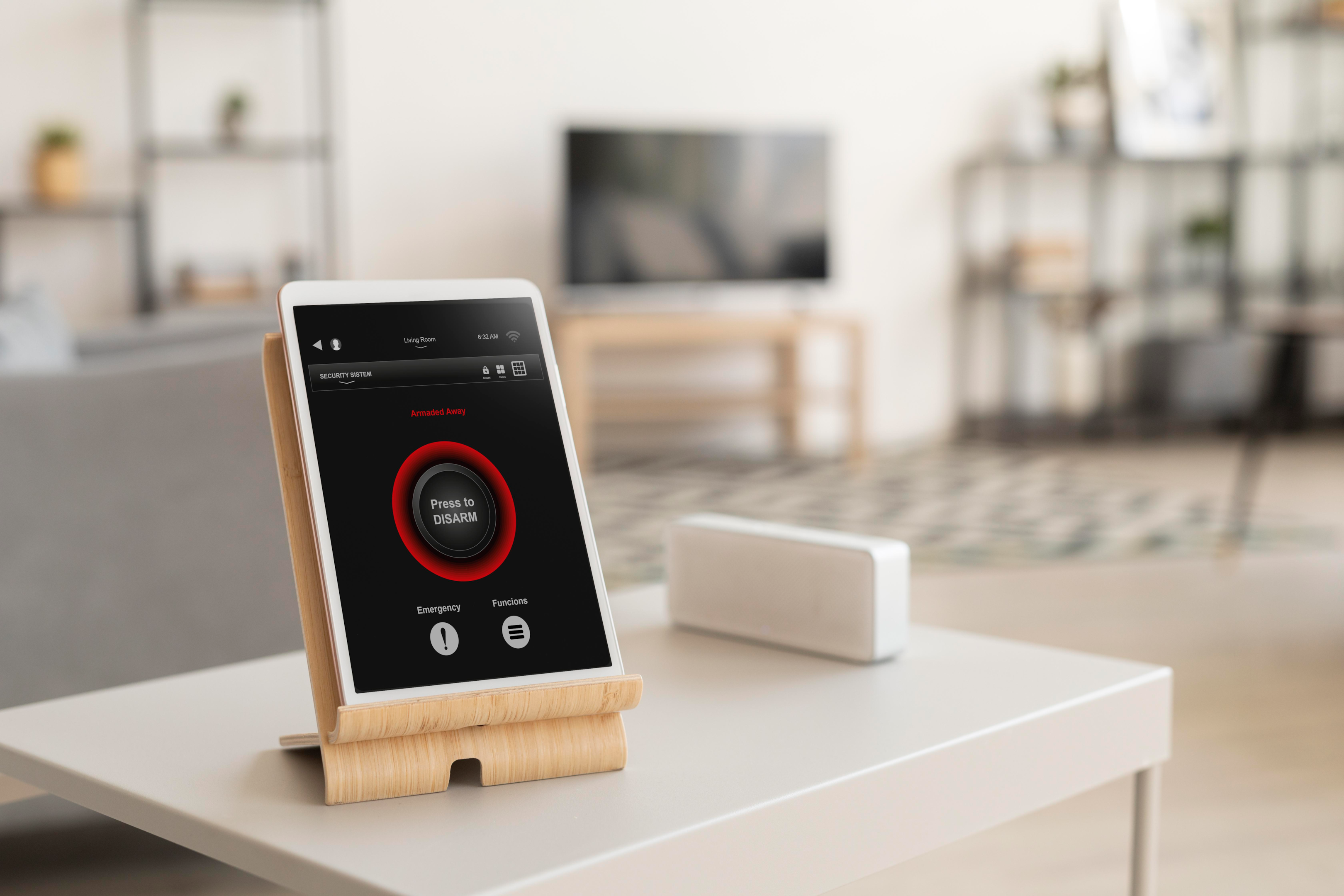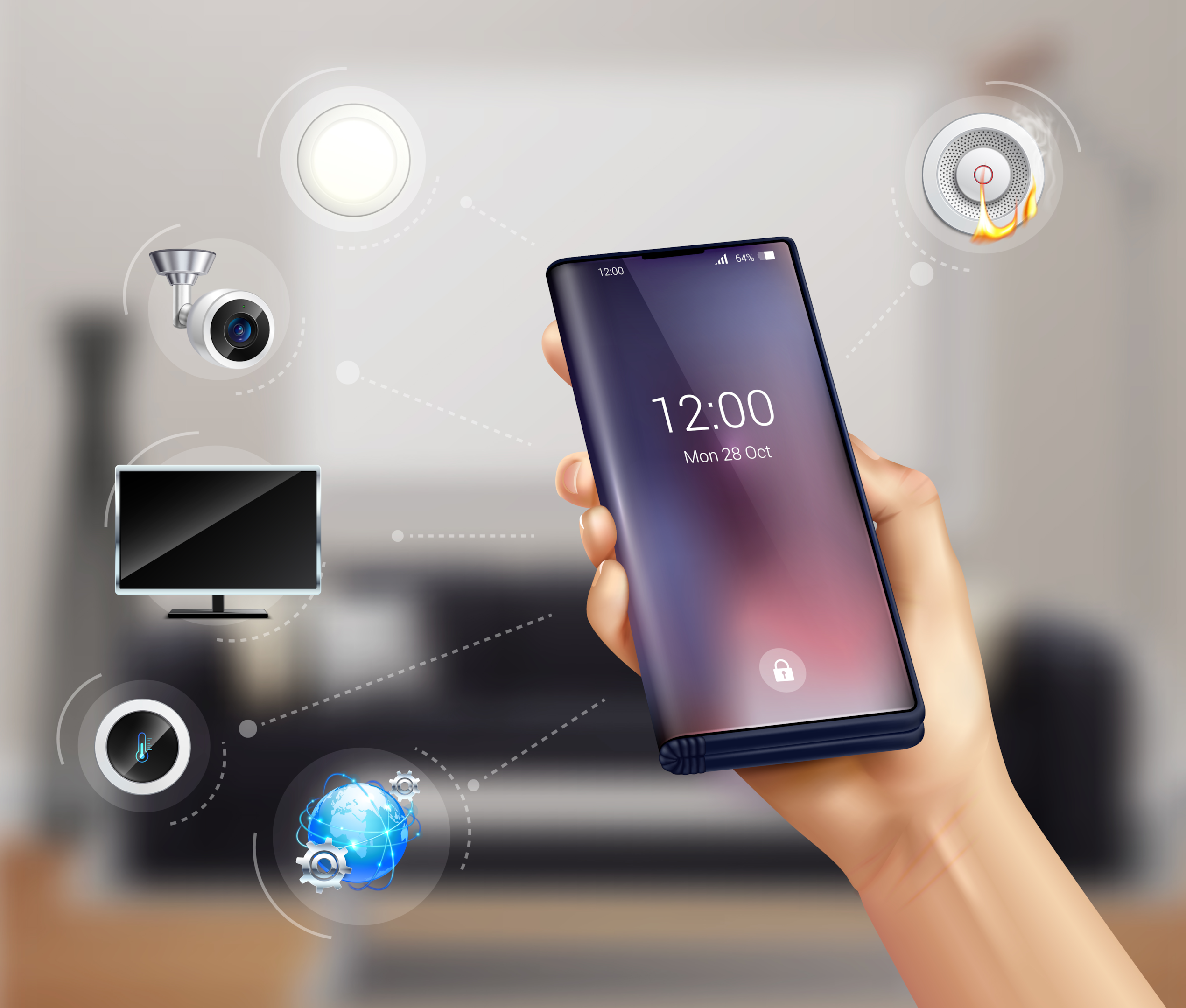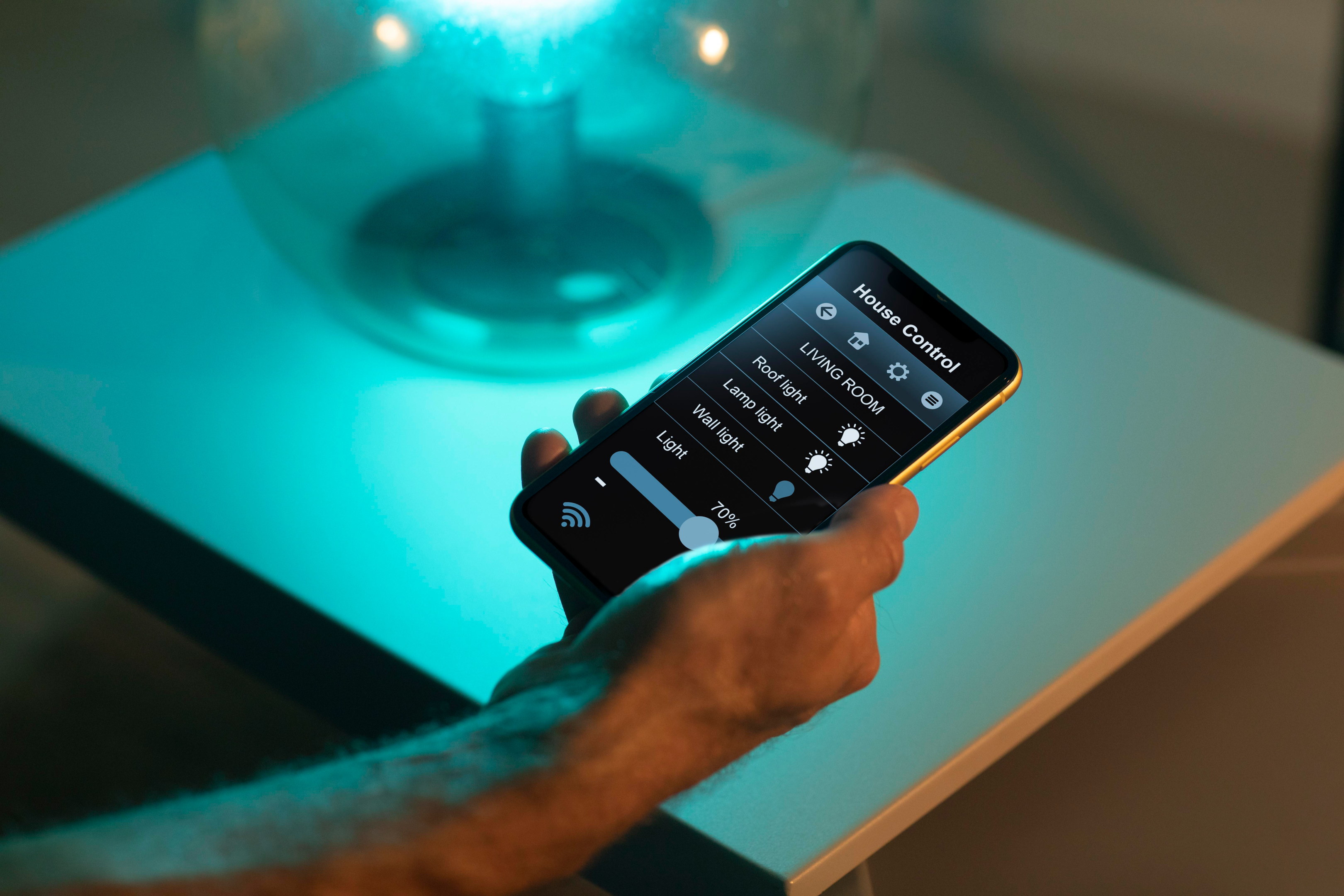The technological world is rapidly evolving, and with the introduction of smart home automation systems, users are looking for the best products for their home in 2023. Smart home automation can connect several devices into one single network, allowing users to automate their home with their smartphone, reducing energy consumption and creating a secure environment for their family. In this article, we’ll look at some of the best home automation systems and their features for 2023.
What is Smart Home Automation?
Smart home automation is a network of interconnected devices that can be managed and controlled remotely by a smartphone or remote. This system allows users to easily turn on and off lights, control the temperature in their home, acc
In the rapidly evolving landscape of technology, smart homes have emerged as a beacon of convenience, efficiency, and innovation. As we step into 2023, the world of smart home devices continues to expand and elevate our everyday living experiences. Whether you’re a seasoned enthusiast or just embarking on your journey toward a smarter home, our guide to “The Best Smart Home Devices for 2023” is your roadmap to discovering the cutting-edge gadgets and solutions that will shape the way you live, work, and play within the connected realms of your home. Join us on this exciting exploration of the most noteworthy, innovative, and indispensable smart home tech and devices that are set to define the year ahead.

Smart Home Assistant
Imagine having a personal assistant at your beck and call, ready to answer questions, play your favorite music, or even control other smart devices in your home. Smart home assistants are becoming increasingly sophisticated, and in 2023, they are more indispensable than ever.
Importance of selecting the best smart home devices for a connected lifestyle
In today’s modern world, technology has become an integral part of our daily lives. One area where technology has truly transformed the way we live is in our homes. Smart home devices have revolutionized the way we interact with our living spaces, making them more efficient, convenient, and connected.
The importance of selecting the best smart home devices cannot be overstated. With so many options available on the market, it’s crucial to choose devices that align with your needs and preferences. Whether you’re looking to automate your lighting, control your appliances remotely, or enhance your home security, selecting the right smart home devices is key.
One of the main benefits of smart home devices is their ability to connect and integrate seamlessly. By selecting devices that work together and are compatible with your existing home infrastructure, you can create a truly connected and synchronized living environment. This means that you can control multiple devices from a single app or voice command, saving you time and simplifying your daily routines.
Another important factor to consider when selecting smart home devices is their security and privacy features. As our homes become more connected, it’s crucial to prioritize the safety and protection of our personal data. Look for devices that offer strong encryption, secure connections, and robust privacy settings to ensure that your information is safe and secure.
How to choose the best smart home device
Choosing the best smart home device can be overwhelming with so many options available. Here are some tips to help you choose the right one:
-
- Determine your needs: Before purchasing a smart home device, identify what you want it to do. Do you want to control your lights, thermostat, or security system? Do you want voice control or a mobile app? Knowing your needs will help you narrow down your options.
- Consider compatibility: Make sure the device you choose is compatible with the other smart devices you already have or plan to purchase. Some devices work with multiple platforms, while others are exclusive to a particular platform.
- Check reviews: Look for reviews of the device you are considering to see what other users have experienced. Check for any recurring issues or complaints.
- Look for integration: Consider devices that can integrate with other smart home devices to create a seamless experience. For example, a smart speaker that can control your lights and thermostat.
- Consider the brand: Choose a reputable brand with a good track record for quality and customer service. This will ensure that you have support if you encounter any issues.
- Check for security: Make sure the device has built-in security features to protect your data and privacy.
By following these tips, you can choose the best smart home device that meets your needs and integrates with your existing smart home ecosystem.
Top Picks for 2023
Smart Speakers and Voice Assistants

Leading Smart Speakers
- Amazon Echo: Amazon’s Echo lineup has been at the forefront of the smart speaker revolution. These devices come in various shapes and sizes to fit different needs. From the compact Echo Dot to the premium Echo Show, Amazon offers a wide range of options to suit your preferences and budget.
- Google Home: Google Home devices, including the Nest series, provide a robust ecosystem for voice-controlled smart home management. They offer exceptional voice recognition capabilities and integrate seamlessly with Google’s suite of services.
Voice Assistant Capabilities
- Alexa: Alexa is Amazon’s voice assistant, known for its extensive skills and compatibility with a vast array of smart devices. You can use Alexa to control your smart lights, thermostats, locks, and more, simply by speaking commands.
- Google Assistant: Google Assistant, with its powerful search capabilities, excels in answering questions and performing tasks. It seamlessly integrates with Google Nest devices and offers voice control for a wide range of smart home gadgets.
Integration with Other Smart Devices
One of the key advantages of smart speakers and voice assistants is their ability to serve as central hubs for your smart home. Here’s how they achieve this integration:
- Smart Light Bulbs: Connect your smart light bulbs, like Philips Hue, to your smart speaker. You can then use voice commands to adjust the lighting in your home. For instance, saying “Hey Google, turn off the lights” can instantly create a cozy atmosphere.
- Smart Locks: Enhance your home security with devices like the August Smart Lock. Integrate it with your smart speaker for voice-controlled locking and unlocking. You can also check the status of your front door with a simple command.
- Smart Plugs: These nifty devices transform regular appliances into smart devices. Pair them with your smart speaker to control devices like coffee makers, fans, or even your Christmas lights using voice commands.
- Smart Thermostats: Smart thermostats, such as the Google Nest Learning Thermostat, are renowned for their energy-saving capabilities. By linking them to your smart speaker, you can adjust your home’s temperature with ease.
- Smart Displays: Devices like the Google Nest Hub and Amazon Echo Show add a visual element to your voice commands. You can watch security camera feeds, check the weather, or follow recipes step by step, all through the smart display.
Home Security Systems

- Ring: Ring has become synonymous with home security. Their range of products includes video doorbells, security cameras, and smart alarm systems. These devices are designed to keep your home safe and provide you with real-time alerts and video feeds.
- Nest: Nest, now a part of Google Nest, offers a comprehensive suite of home security products. From smart doorbells to indoor and outdoor cameras, Nest’s ecosystem is known for its reliability and seamless integration with other smart devices.
Features like Cameras, Motion Sensors, and Remote Monitoring
Smart security systems come equipped with an array of cutting-edge features that work together to safeguard your home:
- Cameras: High-resolution cameras with features like night vision, two-way talk, and wide-angle lenses ensure that you have a clear view of your property, day or night.
- Motion Sensors: These sensors can detect motion in and around your home, triggering alerts and camera recordings when unusual activity is detected.
- Remote Monitoring: Access your security system remotely through smartphone apps or web interfaces. This allows you to check in on your home, receive alerts, and even communicate with visitors or potential intruders.
Importance of Home Security in a Smart Home
In a smart home environment, security takes on added significance:
- Integration with Other Smart Devices: Smart security systems can be seamlessly integrated with other smart devices in your home. For instance, your security cameras can work with your smart lights to deter intruders or your smart lock to allow authorized entry.
- Voice Control: You can use voice commands through devices like smart speakers with Alexa or Google Assistant to check the status of your security system, view camera feeds, or lock doors.
- Energy Efficiency: Some smart security systems, like Nest, also contribute to energy efficiency by optimizing heating and cooling based on occupancy, thereby saving you money on utility bills.
- Peace of Mind: With a smart security system, you can enjoy peace of mind, knowing that your home is protected, whether you’re at work, on vacation, or simply relaxing at home.
- Enhanced Accessibility: Smart security systems often provide features like cloud storage and easy-to-use apps, making it simple to access and review footage or incidents.
Smart Thermostats
Smart thermostats, exemplified by Nest Thermostat and Ecobee, are the technological evolution of traditional temperature control. They are designed to provide you with unprecedented control over your home’s heating and cooling systems while offering a host of intelligent features:
- Nest Thermostat: Nest, now part of Google Nest, has pioneered smart thermostat technology. Its sleek design, learning capabilities, and integration with other smart devices make it a top choice for many homeowners.
- Ecobee: Ecobee smart thermostats are renowned for their user-friendly interfaces and compatibility with various HVAC systems. They offer versatile solutions for precise climate control.
Energy-Saving Benefits and Customization Options
One of the standout features of smart thermostats is their ability to save energy and reduce utility bills:
- Adaptive Learning: Smart thermostats like Nest can learn your daily routines and temperature preferences, automatically adjusting settings to optimize comfort while minimizing energy consumption.
- Remote Control: With smartphone apps and voice commands through devices like smart speakers with Google Assistant or Alexa, you can adjust your thermostat settings from anywhere, ensuring your home is comfortable when you arrive.
- Custom Schedules: Create customized heating and cooling schedules to match your lifestyle. Smart thermostats provide flexibility to fine-tune temperature settings based on your needs.
- Energy Reports: Many smart thermostats offer energy usage reports, allowing you to track and analyze your consumption patterns, enabling further energy-saving decisions.
Compatibility with HVAC Systems
Smart thermostats are engineered to work seamlessly with a wide range of heating and cooling systems:
- Heat Pumps: Whether you have a standard heat pump or a more complex dual-fuel system, smart thermostats are typically compatible, optimizing performance.
- Central Air Conditioning: Smart thermostats integrate effortlessly with central air conditioning units, helping you maintain a comfortable indoor environment.
- Zoned Heating and Cooling: Some models, like the Ecobee, support multi-zone systems, ensuring precise control in different areas of your home.
Smart Lighting

Smart lighting solutions, exemplified by Philips Hue and LIFX, have revolutionized how we illuminate our living spaces:
- Philips Hue: Philips Hue is synonymous with smart lighting innovation. Their range includes smart bulbs, light strips, and even outdoor lighting, offering a versatile selection to suit various needs and aesthetics.
- LIFX: LIFX bulbs are known for their vibrant colors and simplicity. These Wi-Fi-enabled bulbs are easy to set up and control, making them a favorite among users seeking hassle-free smart lighting.
Convenience and Energy-Efficiency
- Lighting Automation: Smart lighting systems allow you to automate your lights based on schedules, occupancy, or even ambient light conditions. Say goodbye to manually turning lights on and off.
- Energy Efficiency: LED smart bulbs are energy-efficient, reducing your electricity bills and environmental footprint. They use significantly less energy compared to traditional incandescent bulbs.
- Color Customization: Some smart bulbs, like those from Philips Hue, offer a spectrum of colors, allowing you to create personalized lighting moods for different occasions.
Control Options and Integration with Voice Assistants
Smart lighting provides you with various ways to control your lights:
- Smartphone Apps: Use dedicated apps to control individual bulbs or create lighting scenes that match your mood or activity.
- Voice Control: Integration with voice assistants like Google Assistant and Alexa enables you to adjust your lights with simple voice commands. For example, “Hey Google, dim the living room lights.”
- Smart Speakers: Pair your smart lights with a smart speaker, and you can control your entire lighting system with voice commands through a central hub.
Smart Light Bulbs
Smart light bulbs are the building blocks of smart lighting systems:
- LED Technology: Most smart bulbs use energy-efficient LED technology, ensuring long-lasting and eco-friendly illumination.
- Compatibility: They are compatible with standard light fixtures, making it easy to upgrade your existing lighting setup.
- Dimming and Color Control: Depending on the model, smart bulbs allow you to adjust brightness levels and choose from millions of colors.
Smart Locks and Doorbells

Smart Locks and Doorbells (e.g., August, Ring Doorbell)
- August Smart Lock: August is synonymous with innovative smart lock technology. Their range of smart locks, including the August Smart Lock Pro, offers keyless entry, remote access, and robust security features.
- Ring Doorbell: Ring has revolutionized doorbell technology with its range of video doorbells. These devices provide real-time video feeds, two-way communication, and motion-activated alerts, enhancing your home’s security.
Security Enhancements and Remote Access
- Keyless Entry: Smart locks eliminate the need for traditional keys. You can unlock your door with a smartphone app, a keypad, or even voice commands through voice assistants like Google Assistant and Alexa.
- Remote Locking and Unlocking: Whether you’re at work or on vacation, you can remotely lock or unlock your door using your smartphone. This is incredibly convenient for granting access to guests or service providers.
- Video Surveillance: Video doorbells like Ring offer visual verification of visitors and deliveries. You can see and interact with guests from anywhere, enhancing both security and convenience.
- Motion Detection: Many smart doorbells feature motion sensors that trigger alerts when someone approaches your front door. This deters potential intruders and ensures you’re always aware of activity outside your home.
Integration with Home Security Systems
Smart locks and doorbells are at the forefront of enhancing home security and accessibility in the modern age of smart homes. These devices offer keyless entry, remote access, and video surveillance, all contributing to peace of mind and convenience. Their integration with home security systems further fortifies your home’s defenses, providing a comprehensive solution for safeguarding your loved ones and property. As technology continues to shape the way we interact with our living spaces, smart locks and doorbells stand as sentinels of security and connectivity, redefining our front door experience. Smart locks and doorbells are integral components of comprehensive home security systems:
- Alarms and Sensors: When integrated with a broader home security system, smart locks can trigger alarms in the event of unauthorized access, enhancing your home’s overall safety.
- Video Surveillance: Video doorbells complement security camera systems, offering front door visibility that seamlessly integrates with your security platform.
- Smart Home Hubs: Some smart locks and doorbells are compatible with smart home hubs like Google Nest Hub, creating a centralized control point for your entire smart home ecosystem.
Future Trends in Smart Home Technology
Smart home technology is constantly evolving, and there are several trends that are expected to shape the future of smart homes. Here are some of the top smart home technology trends to watch for in 2023:
- Integration: Seamless connectivity between devices and appliances will become even more important. More devices and appliances will be interconnected, allowing them to communicate and work together, enhancing efficiency and convenience.
- Artificial Intelligence (AI) and Internet of Things (IoT): Smarter homes with AI and IoT will become more common. AI will enable devices to learn from user behavior and adjust settings automatically, while IoT will allow devices to communicate with each other and share data.
- Voice-controlled Assistants: Voice-controlled assistants like Siri, Alexa, and Google Assistant will continue to gain popularity. They will become more advanced and integrated with other smart home devices.
- Robotics: Robotics will become more common in smart homes, with devices like robotic vacuums and lawn mowers. Robotics will automate mundane tasks and make life easier for homeowners.
Conclusion
When embarking on the journey of building a smart home, it’s imperative to make well-informed decisions regarding the selection of smart devices. The factors to consider, including compatibility, ease of use, security, cost, functionality, reviews, scalability, energy efficiency, warranty, brand reputation, user experience, and interoperability, collectively shape the success and satisfaction of your smart home ecosystem.
By carefully weighing these considerations, you can create a smart home environment that not only meets your immediate needs but also adapts to future requirements. Your choices should prioritize security, privacy, cost-efficiency, and seamless integration, ultimately ensuring that your smart home experience is both enjoyable and reliable. In the rapidly evolving world of smart technology, informed decisions today pave the way for a smarter, more connected, and more efficient home tomorrow.
Are smart home devices worth it?
Smart phones have the capacity to simplify our lives. These internet enabled devices let people control lighting and temperature, check who has walked in, listen to music set alarms, receive news alerts every day or watch upcoming movies. You’ll be able to use different routines to control how devices work together (for example, turn off lights on waking the night before or dim the lights on when your TV goes on).
How to choose the best smart home devices for you
Choosing the smartest home device will differ from one person to another. Most of the decision depends on the smart home platform that you like and you need to get a phone that can connect to the voice control app. There are three main categories for Alexa: Google Assistant Home & Siri, or Apple HomeKit/Siri. We also have hints for using Alexa and Google Assistant, and a face-off between Alexa and Google Assistant. Alexa usually wins because it is used with most devices in the house, with the most advanced software tools and it is able to do the most.
ess an alarm system, and much more.
The Benefits of Smart Home Automation
Smart home automation offers numerous benefits. These include:
-
- Increased home safety and security.
-
- Reduced energy consumption and costs.
-
- Increased convenience and control over your home’s devices.
-
- Improved manageability of your home’s devices.
-
- Enhanced home personalization.
Types of Smart Home Automation Systems
There are several types of smart home automation systems available, each with its own features and benefits. Some of the most popular options include:
-
- Wi-Fi-based systems. These allow users to connect multiple devices to one network, using a wireless router.
-
- Bluetooth-based systems. These require a Bluetooth-compatible device to control the home’s devices.
-
- Z-wave-based systems. These use a mesh network of nodes to create a network of devices.
-
- Infrared-based systems. These use infrared light to transmit data between devices.
-
- Radio-frequency-based systems. These use radio frequency to control devices remotely.
The Best Smart Home Devices for 2023
With so many options, it can be difficult to decide which home automation system is best for you. To make things easier, here are some of the best smart home devices for 2023:
Nest Smart Hub
The Nest Smart Hub is a powerful, easy-to-use home automation system that allows users to control their lighting, thermostats, locks, security systems, and more. It comes with voice control capabilities, so users can control their devices with their voice, as well as access to Nest’s cloud-based service. The Nest Smart Hub is one of the most popular home automation systems on the market and is a great option for those who want a reliable, feature-rich system.
Philips hue Smart Lights
Philips hue Smart Lights provide users with the ability to control their lighting with their smartphone. This system allows users to create custom lighting scenes, adjust the color and intensity of their lights, and schedule when they turn on and off. Philips hue lights are also compatible with Amazon Alexa and Google Assistant.
Ecobee Smart Thermostat
The Ecobee Smart Thermostat is the perfect choice for those who want to control the temperature in their home. This system allows users to customize the temperature in their home and schedule when their heating and cooling system turns on and off. It also offers access to energy-saving tips and temperature readouts for each room, so users can ensure their home is as energy-efficient as possible.
Ring Alarm Home Security System
The Ring Alarm Home Security System is a great option for those who want to secure their home from burglary or intrusion. This system offers 24/7 home monitoring, motion detection, and even the ability to control your system with your voice. The Ring Alarm System is one of the most reliable home security systems available and is a great choice for those looking for a reliable system.
Conclusion
Smart home automation systems are becoming increasingly popular, as they offer users the ability to easily control their home with their smartphone. By choosing the right system, users can benefit from increased convenience and security, as well as improved manageability and energy savings. The products mentioned here are some of the best home automation devices available for 2023, and will help to make your home a smarter, safer place.
With the evolving world of technology, the possibilities for smart home devices are almost endless. In 2023, there will be even more options for smart home automation systems, so make sure to do your research and find the best system for your needs.
What are the most reliable smart home devices for 2023?
1.Google Nest Thermostat
2.Amazon Echo with Alexa
3.Philips Hue Lighting
4.Nest Secure Home Security System
5.Sony Smart TV
6.Samsung Smart Refrigerator
7.Kwikset Smart Lock
8.August Smart Lock
9.Ring Video Doorbell
10.Arlo Security Cameras
11. ecobee4 Smart Thermostat
12.Ring Alarm Home Security System
What smart home devices should I buy in 2023?
In 2023, you could consider buying smart home devices such as:
• Smart thermostats
• Smart security systems
• Smart lighting systems
• Smart appliances
• Smart door locks
• Smart water leak detections systems
• Smart irrigation systems
• Home automation hubs
• Smart entertainment systems
• Smart pet care devices